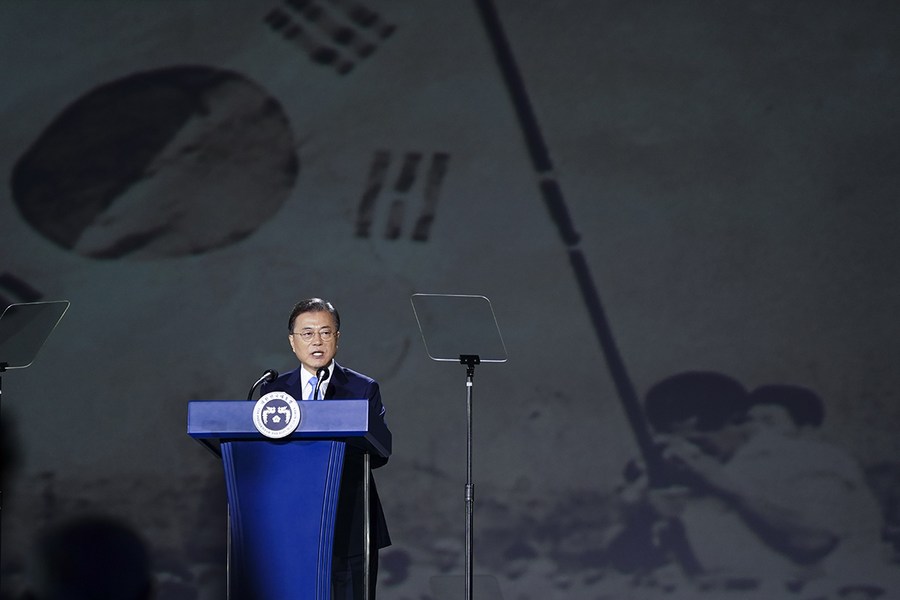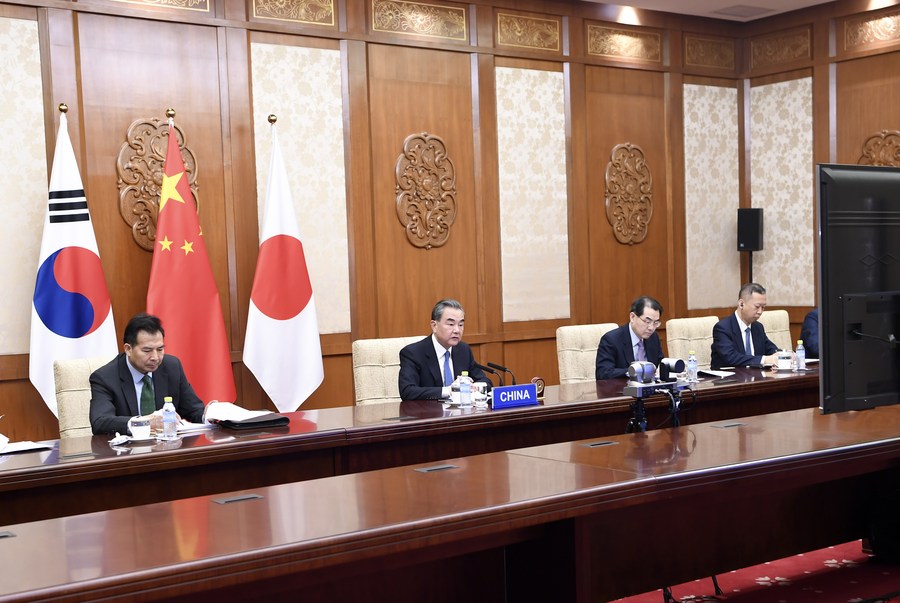 South Korean President Moon Jae-in delivers a televised speech to mark the 75th anniversary of the Korean Peninsula's liberation from the 1910-45 Japanese colonial rule, in Seoul, South Korea, Aug. 15, 2020. (South Korea Presidential Blue House/Handout via Xinhua)
South Korean President Moon Jae-in delivers a televised speech to mark the 75th anniversary of the Korean Peninsula's liberation from the 1910-45 Japanese colonial rule, in Seoul, South Korea, Aug. 15, 2020. (South Korea Presidential Blue House/Handout via Xinhua)
To prevent a "neo-Cold War," Moon called for the leaders of South Korea, China and Japan to play a role through constructive dialogue and cooperation.
SEOUL, Oct. 30 (Xinhua) -- A "neo-Cold War" in East Asia will be a disaster to countries in the region, a special adviser to South Korean President Moon Jae-in has said, according to local media reports.
Moon Chung-in, a special presidential adviser for unification, security and foreign affairs, made the remarks in a keynote speech for the Korea-China-Japan Peace Forum 2020 held in central Seoul on Tuesday.
Moon said the "neo-Cold War" is a negative-sum game, where no one can be a winner, rather than a zero-sum game, noting that the situation under the "neo-Cold War" will cause a split in East Asia, escalate military conflict, decouple economies and terminate regionalism.
As the Korean Peninsula's division, war and chronic military confrontation stemmed from the Cold War, nobody will want it resurrected, he noted.
 Chinese State Councilor and Foreign Minister Wang Yi attends a special meeting via videoconference on the novel coronavirus disease (COVID-19) with Foreign Minister of the Republic of Korea (ROK) Kang Kyung-wha and Japanese Foreign Minister Toshimitsu Motegi in Beijing, China, March 20, 2020. (Xinhua/Zhang Ling)
Chinese State Councilor and Foreign Minister Wang Yi attends a special meeting via videoconference on the novel coronavirus disease (COVID-19) with Foreign Minister of the Republic of Korea (ROK) Kang Kyung-wha and Japanese Foreign Minister Toshimitsu Motegi in Beijing, China, March 20, 2020. (Xinhua/Zhang Ling)
To prevent a "neo-Cold War," Moon called for the leaders of South Korea, China and Japan to play a role through constructive dialogue and cooperation.
In addition to the role of the leaders, it would be important for civil communities to play a role, he noted.
The professor emeritus at Yonsei University in Seoul said that peace on the Korean Peninsula would be of significance for peace in East Asia, calling for a simultaneous push for the peninsula's denuclearization and peace settlement.
Moon emphasized the importance for the declaration to end the 1950-53 Korean War, which he said would be an entry to denuclearize the peninsula and a process to settle peace regime on the peninsula.
The peninsula remains in a technical state of war as the Korean War ended with an armistice, not a peace treaty. ■



